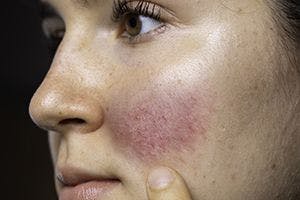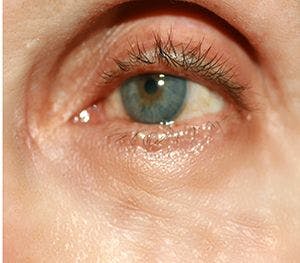- Acne
- Actinic Keratosis
- Aesthetics
- Alopecia
- Atopic Dermatitis
- Buy-and-Bill
- COVID-19
- Case-Based Roundtable
- Chronic Hand Eczema
- Chronic Spontaneous Urticaria
- Drug Watch
- Eczema
- General Dermatology
- Hidradenitis Suppurativa
- Melasma
- NP and PA
- Pediatric Dermatology
- Pigmentary Disorders
- Practice Management
- Precision Medicine and Biologics
- Prurigo Nodularis
- Psoriasis
- Psoriatic Arthritis
- Rare Disease
- Rosacea
- Skin Cancer
- Vitiligo
- Wound Care
Publication
Article
Dermatology Times
A new business model for dermatology
Author(s):
Dermatologists are some of the brightest and most entrepreneurial of all physicians. We can set up our own private equity firm and maintain control of our specialty. I believe it is possible. What do you think?
Dermatology has always been a fascinating, fun area of medical practice. So much so, that everyone wants a piece of the action. Dermatology is unique in that it encompasses patients of both sexes of all ages who are in need of medical, surgical and/or aesthetic services.
Income is derived from the government, private insurance and patient cash pay. No other field of medicine has such diversity in scope or income. These observations caught the attention of big business that spotted an opportunity to make some quick money through investment. Hence, the current expanding trend for purchase of established dermatology practices to undergo consolidation into large conglomerates controlled by private equity.
With a five-year horizon based not on patient care or the practice needs of physicians, the goal of this consolidation is to make money for big business at the expense of all else. The profits that are made for investors are the income the dermatologist generated and used to take home. This potentially leaves control of dermatology in the hands of businessmen who are keeping an eye on the bottom line and know little about the practice of medicine, except that it makes money.
However, I believe the battle for control of dermatology is not yet over. There is still time to preserve the joy of independent private practice that has been the hallmark of my medical career, but the opportunity is rapidly disappearing. I would like to propose an alternative model for dermatology practice that I believe would preserve physician autonomy, income and job satisfaction.
I think private equity has nicely provided a business model with demonstrated success that we should now adopt.
A nonprofit corporation should be set up as the new business framework. The nonprofit status is important, as demonstrated by the business model used by Blue Cross Blue Shield insurance that has allowed them to become a dominant force in health insurance by becoming more profitable due to their tax-free status. Dermatologists throughout the United States would join their practices to regional groups, much like the current status of private equity groups to avoid FTC issues. These groups would be part of the nonprofit corporation, which would need to be structured carefully to avoid a monopoly. Board-certified U.S. licensed dermatologists would hold stock in the new corporation based on their practice value with additional stock purchase both possible and encouraged. Twenty percent of practice income would be shared and 80% would be based on productivity. This would provide for investment in areas where dermatology growth was necessary to generate additional financial returns that would be shared by all stockholders.
All of the best private equity ideas could be incorporated, but the difference is the dermatologists are the investors, not someone making money on the back of dermatologists. Further, young dermatologists, dermatologists in their mid-career, dermatologists at the end of their career, and retiring dermatologists all would benefit from job and economic satisfaction. It would be a private equity fund directed by and for dermatologists with a strong dedication to preservation of the specialty and philanthropy. In time, a research arm could be instituted where new technologies could be developed and patented by the dermatology private equity nonprofit and then introduced into practices that are members throughout the United States. Patents would be shared between the inventor dermatologist and the corporation.
Dermatologists are some of the brightest and most entrepreneurial of all physicians. We can do better than to sell the future of our specialty to businessmen investors. We can be businessmen investors! We can set up our own private equity firm and maintain control of our specialty. I believe it is possible. What do you think?

Newsletter
Like what you’re reading? Subscribe to Dermatology Times for weekly updates on therapies, innovations, and real-world practice tips.


























